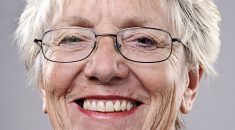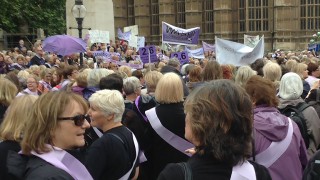UNISON’s national women’s conference opened in Bournemouth this afternoon with a debate on safety for the social care workforce.
One delegate described how, as a nurse, she had seen a patient with severe medical problems that cause difficult behaviour, putting the patient themselves and those working them at risk.
To help avoid this, the hospital uses a private agency to supply extra staff, but having a different carer every day exacerbates the problems – and all in the name of profit.
Jenny Martin from the West Midlands took the opportunity to remind delegates of the ongoing struggle by Birmingham care workers against council plans to slash their hours and pay.
On women’s heath safety and wellbeing in the workplace, hospital cleaner Cath from Torbay told of how they took she and her colleagues took their employer to court over the chemicals they were given to use in their work and the lack of training in using them correctly.
They won compensation for the sickness caused – and have now had proper training.
UNISON wins £70,000 pay out for hospital cleaners
She also urged delegates to be aware of what they use to clean in their own homes, pointing out that, for instance, if you use bleach with hot water, fumes are created that can do damage to the respiratory system.Branch welfare officer Debbie from Fermanagh told delegates about the problems faced in getting heath advice out to other women.
Conference backed the idea of using the internet to enable branches to more easily find information.
Later, in an emotive debate around pensions, Michaela Hawkins from Wales reminded delegates that, contrary to what some Conservative MPs have claimed, the decision to stop women born in the 1950s from receiving their state pension at 60 – the Waspi women – was not made by the EU.
She explained that the relevant EU directive states that state pension is a matter for domestic governments.
There were calls for support for Backto60.com campaign, which aims to keep pension age of 60 for those women born in the 1950s.
“We have to stand together to get the very best for the 1950s members,” said a delegate from Wales.
“It’s a slog every day,” said a care worker from Cheshire, talking of how women, nearing what what they had believed would be their retirement age, suddenly finding they’d have to work years longer.










